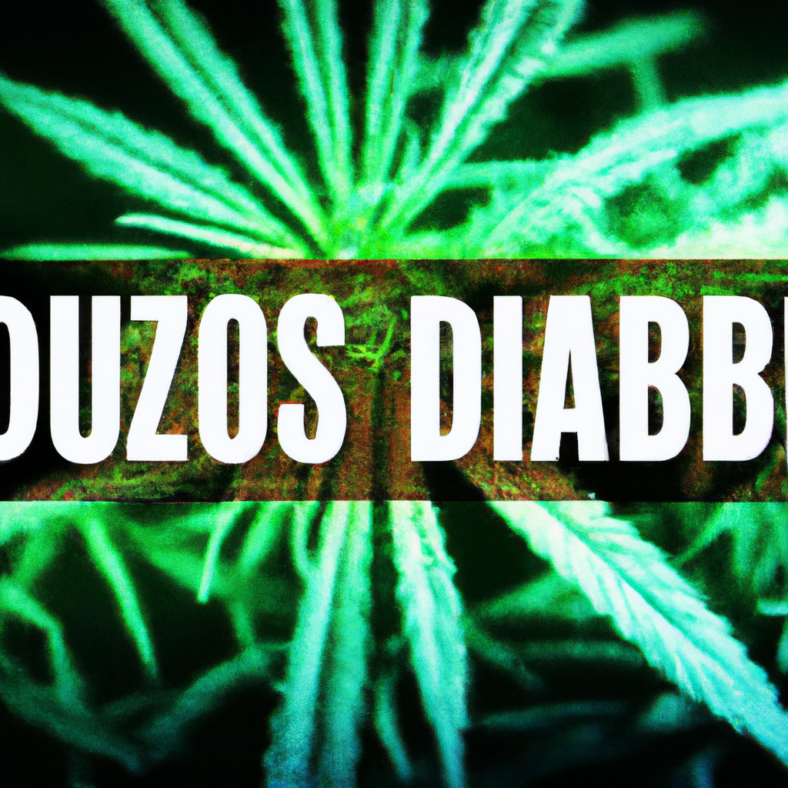-
Reading Roadmap
- The Impact of Marijuana Use on Clinical Results in Teens and Young Adults with Diabetes: Insights from the SEARCH for Diabetes in Youth Study
- Key Takeaways
- Introduction: Unraveling the Impact of Marijuana on Diabetes Management
- Marijuana Use and Diabetes: A Troubling Connection
- FAQ Section: Addressing Common Queries
- 1. Why does marijuana use lead to poorer diabetes management?
- 2. Are the effects of marijuana use the same for type 1 and type 2 diabetes?
- 3. Can medical marijuana be used to manage diabetes symptoms?
- 4. What can be done to mitigate the risks associated with marijuana use in young patients with diabetes?
- 5. Is further research needed on this topic?
- Conclusion: A Call for Caution and Further Research
- Further Analysis
The Impact of Marijuana Use on Clinical Results in Teens and Young Adults with Diabetes: Insights from the SEARCH for Diabetes in Youth Study

[youtubomatic_search]
Key Takeaways
- Marijuana use among teens and young adults with diabetes can lead to adverse clinical outcomes.
- The SEARCH for Diabetes in Youth Study provides valuable insights into the effects of marijuana use on this population.
- Increased hospitalization rates, poor glycemic control, and higher prevalence of diabetic ketoacidosis are among the negative impacts.
- Healthcare providers should consider the potential risks of marijuana use when treating young patients with diabetes.
- Further research is needed to fully understand the long-term effects of marijuana use on diabetes management.
Introduction: Unraveling the Impact of Marijuana on Diabetes Management
The increasing legalization and social acceptance of marijuana use have raised concerns about its potential health implications, particularly among vulnerable populations such as teens and young adults with chronic diseases like diabetes. This article delves into the findings of the SEARCH for Diabetes in Youth Study, shedding light on the impact of marijuana use on clinical outcomes in this demographic.
Marijuana Use and Diabetes: A Troubling Connection
The SEARCH for Diabetes in Youth Study, a multi-center, observational study funded by the Centers for Disease Control and Prevention and the National Institutes of Health, has been instrumental in understanding the prevalence and impact of diabetes in youth. A subset of this study focused on the effects of marijuana use among teens and young adults with diabetes, revealing some concerning trends.
According to the study, marijuana use was associated with a 2.5 times higher risk of diabetic ketoacidosis, a serious diabetes complication that can lead to coma or even death. This risk was particularly pronounced in patients with type 1 diabetes. Furthermore, marijuana users were found to have poorer glycemic control, as evidenced by higher hemoglobin A1c levels, a key marker of diabetes management.
Another alarming finding was the increased hospitalization rates among marijuana users. These patients were more likely to be admitted to the hospital for various reasons, including diabetic ketoacidosis, hypoglycemia, and other diabetes-related complications. This not only impacts the patients’ health but also places a significant burden on the healthcare system.
FAQ Section: Addressing Common Queries
1. Why does marijuana use lead to poorer diabetes management?
While the exact mechanisms are not fully understood, it is believed that marijuana use can interfere with insulin production and regulation, leading to poorer glycemic control. Additionally, marijuana use may impact adherence to diabetes management plans, including medication use and lifestyle modifications.
2. Are the effects of marijuana use the same for type 1 and type 2 diabetes?
The SEARCH study found that the risks associated with marijuana use were particularly pronounced in patients with type 1 diabetes. However, further research is needed to fully understand the differential effects on type 1 and type 2 diabetes.
3. Can medical marijuana be used to manage diabetes symptoms?
While some studies suggest potential benefits of medical marijuana in managing certain diabetes symptoms, the risks, particularly for young patients, seem to outweigh the benefits. Healthcare providers should carefully consider these risks when recommending medical marijuana for diabetes management.
4. What can be done to mitigate the risks associated with marijuana use in young patients with diabetes?
Education and counseling about the potential risks of marijuana use are crucial. Healthcare providers should also closely monitor these patients and adjust their diabetes management plans as necessary.
5. Is further research needed on this topic?
Yes, further research is needed to fully understand the long-term effects of marijuana use on diabetes management, particularly among different demographic groups.
Conclusion: A Call for Caution and Further Research
The findings from the SEARCH for Diabetes in Youth Study underscore the potential risks of marijuana use among teens and young adults with diabetes. Increased hospitalization rates, poor glycemic control, and a higher prevalence of diabetic ketoacidosis are among the negative impacts, highlighting the need for healthcare providers to consider these risks when treating young patients with diabetes.
While further research is needed to fully understand the long-term effects of marijuana use on diabetes management, these findings serve as a crucial reminder of the importance of caution and vigilance. As marijuana use becomes increasingly prevalent, it is imperative to continue investigating its impact on vulnerable populations and to educate patients and healthcare providers about the potential risks.
[youtubomatic_search]
Further Analysis
Reviewing the key takeaways from this article, it is clear that marijuana use can have significant negative impacts on the clinical outcomes of teens and young adults with diabetes. The SEARCH for Diabetes in Youth Study provides valuable insights into these effects, highlighting the need for caution, education, and further research. As we continue to navigate the evolving landscape of marijuana use, it is crucial to keep these findings at the forefront of our discussions and decisions.

Leave a Reply